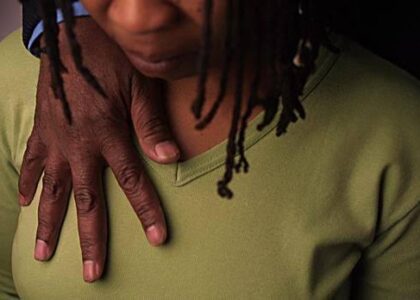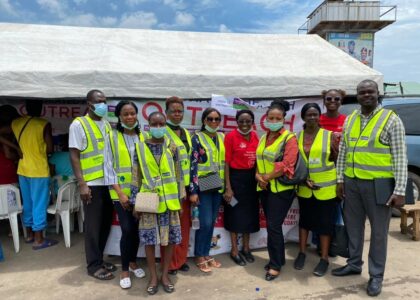[fusion_builder_container hundred_percent=”no” equal_height_columns=”no” menu_anchor=”” hide_on_mobile=”small-visibility,medium-visibility,large-visibility” class=”” id=”” background_color=”” background_image=”” background_position=”center center” background_repeat=”no-repeat” fade=”no” background_parallax=”none” enable_mobile=”no” parallax_speed=”0.3″ video_mp4=”” video_webm=”” video_ogv=”” video_url=”” video_aspect_ratio=”16:9″ video_loop=”yes” video_mute=”yes” video_preview_image=”” border_size=”” border_color=”” border_style=”solid” margin_top=”” margin_bottom=”” padding_top=”” padding_right=”” padding_bottom=”” padding_left=””][fusion_builder_row][fusion_builder_column type=”1_1″ layout=”1_1″ spacing=”” center_content=”no” hover_type=”none” link=”” min_height=”” hide_on_mobile=”small-visibility,medium-visibility,large-visibility” class=”” id=”” background_color=”” background_image=”” background_position=”left top” background_repeat=”no-repeat” border_size=”0″ border_color=”” border_style=”solid” border_position=”all” padding_top=”” padding_right=”” padding_bottom=”” padding_left=”” margin_top=”” margin_bottom=”” animation_type=”” animation_direction=”left” animation_speed=”0.3″ animation_offset=”” last=”no”][fusion_imageframe image_id=”14158″ style_type=”none” stylecolor=”” hover_type=”none” bordersize=”” bordercolor=”” borderradius=”” align=”none” lightbox=”no” gallery_id=”” lightbox_image=”” alt=”” link=”” linktarget=”_self” hide_on_mobile=”small-visibility,medium-visibility,large-visibility” class=”” id=”” animation_type=”” animation_direction=”left” animation_speed=”0.3″ animation_offset=””]https://www.ehainigeria.org/wp-content/uploads/2018/05/kidney-and-women.png[/fusion_imageframe][fusion_text]
Chronic kidney disease (CKD), also known as nephropathy or renal disease is a long-term condition that may eventually lead to kidney failure and premature death. Kidney disease is one of the fastest growing illnesses in the world and millions of people across the globe are now living with the condition. Hence, the need to raise awareness about kidney disease and make people realize how important their kidneys are to overall health and well-being.
In a bid to intensify awareness efforts, the World Kidney Day (WKD) is observed annually on the 2nd Thursday in March. This year, World Kidney Day coincided with International Women’s Day, on March 8 and had the theme “Kidneys & Women’s Health: Include, Value, Empower”.
Girls and women make up almost 50% of the world’s population and are important contributors to society and their families but gender differences continue to exist around the world in terms of access to education and medical care. Hence, the theme lays emphasis on women’s ability to manage their health and kidneys despite gender differences. Research based studies suggest that women are more likely to develop CKD than men, with an average 14% prevalence in women and 12% in men. According to www.worldkidneyday.org approximately 195 million women suffer from CKD worldwide. It is also currently the 8th leading cause of death in women, with close to 600,000 deaths each year.
[/fusion_text][fusion_text]
The alarming statistics stated above are not unconnected with the following factors;
Biological factor
According to the World Health Organization, women are biologically more prone to renal diseases. This is because women have shorter urinary tract passage and are commonly prone to urinary tract infections (UTIs). UTIs can affect the kidneys, bladder and tubes that run between them. Medical experts say the damage is greater in younger girls who are affected by UTIs. Over time, their kidney gets scarred, which may lead to renal failure later in life. Also, some kidney diseases, such as lupus nephropathy or kidney infection (acute or chronic pyelonephritis) typically affect women.
Pregnancy is a unique state for women which offers an opportunity for the diagnosis of kidney disease because it is a period when acute and chronic kidney diseases may manifest. CKD is considered a risk factor for adverse pregnancy outcome and reduced fertility. However, even women without CKD may be at risk during both pregnancy and birth because of pre-eclampsia. Health problems that increase blood pressure can put a strain on the kidneys. For this very reason, proper prenatal care is crucial for all pregnant women.
Women’s biological vulnerability to kidney diseases coupled with late treatment lead to more CKD induced deaths in women.
Psycho-socioeconomic factor
Psycho-socioeconomic barriers such as poor awareness level and lack of financial empowerment lead to late or no start of dialysis among women. Studies suggest that men are more likely to get dialysis earlier. Uneven access to health care is also a major reason for more female mortality in countries with little or no universal healthcare policies.
Despite the fact that women suffer from certain diseases affecting the kidneys more than men, they are less likely to get treated, mostly due to social, cultural and psychological factors. Also, women tend more often to donate kidneys and are less likely to receive them. More women’s lives could be saved if diagnosis and care began at treatable stages. There is often no cure, but an earlier diagnosis can improve the effectiveness of treatment and limit complications.
Mental factor
Studies indicate that CKD is hard to diagnose. This is because symptoms of kidney disease develop slowly and are not specific to the condition. Empirical research suggest that many women are less concerned about their health because they focus more on their children’s health and well being of other members of the family. Hence, they tend not to suspect anomalies in their bodies early. Also, early symptoms of CKD such as urinating less often, loss of appetite, trouble sleeping, fatigue, et cetera, often indicate numerous other health problems. Many people with the condition won’t have symptoms because it doesn’t usually cause problems until it reaches an advanced stage.
Women should be oriented to value their health and seek medical help if they have persistent symptoms that could be caused by kidney disease.
[/fusion_text][fusion_text]
Adherence to these tips for preventing and managing CKD can reduce CKD induced female mortality:
Making healthier choices in life.
- These include maintaining a healthy weight by exercising regularly and staying physically active.
- Ensure you observe routine medical checkups.
- Avoid cigarette smoking and limit alcohol consumption if you have CKD.
- Make the right changes to your diet if you have CKD like limiting salt and fluids, eating a low-protein diet, et cetera.
Manage your health conditions appropriately with the help of a medical expert.
- If you have high blood pressure, diabetes, heart problems, a family history of kidney disease – work with your doctor to monitor the conditions as well as your kidneys’ health.
- Adopt a health savings plan and save towards your health. This will make it easy to manage your health and other adverse health conditions such as CKD.
Ultimately, pay more attention to your body and strive to be more curious about the unique aspects of kidney disease in women so that you may apply what you learn in managing your health with the help of a medical expert.
[/fusion_text][fusion_text]
The links below are the references from which this article was drawn. They contain more information on CKD
https://www.freseniuskidneycare.com/tools-and-resources
https://www.kidney.org/sites/default/files/docs/coping.pdf
[/fusion_text][fusion_text columns=”” column_min_width=”” column_spacing=”” rule_style=”default” rule_size=”” rule_color=”” hide_on_mobile=”small-visibility,medium-visibility,large-visibility” class=”” id=””]
For more insightful contents from Oluwatobiloba Akerele, watch this space.
You can also follow her on social media:
Instagram: @oluwatobiloba_akerele
LinkedIn: @Oluwatobiloba Hannah Akerele
Join the conversation: drop your comments here and follow us on social media
Watch this space!
Featured Image: Google Images
[/fusion_text][/fusion_builder_column][/fusion_builder_row][/fusion_builder_container]







